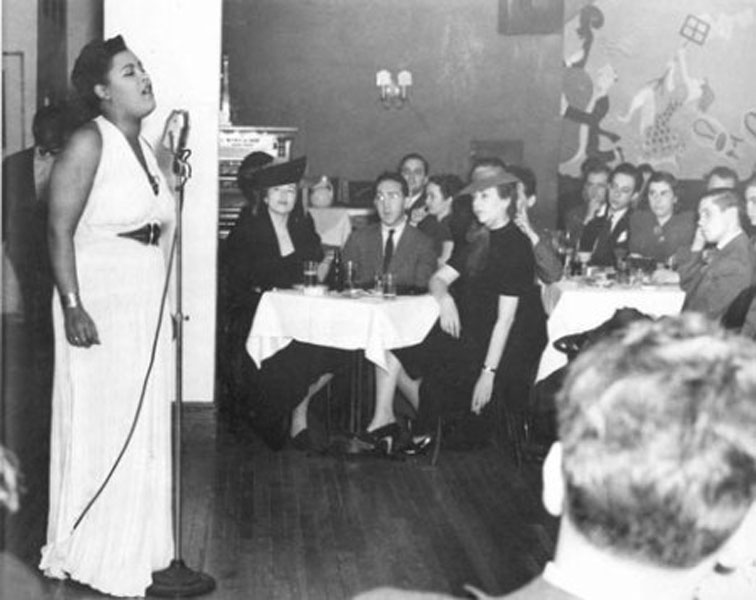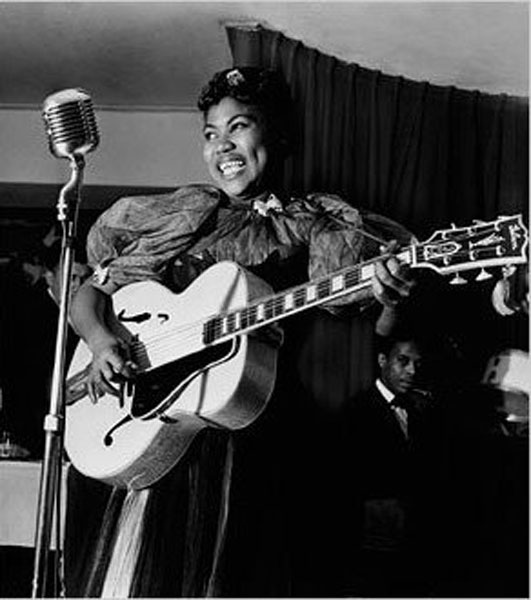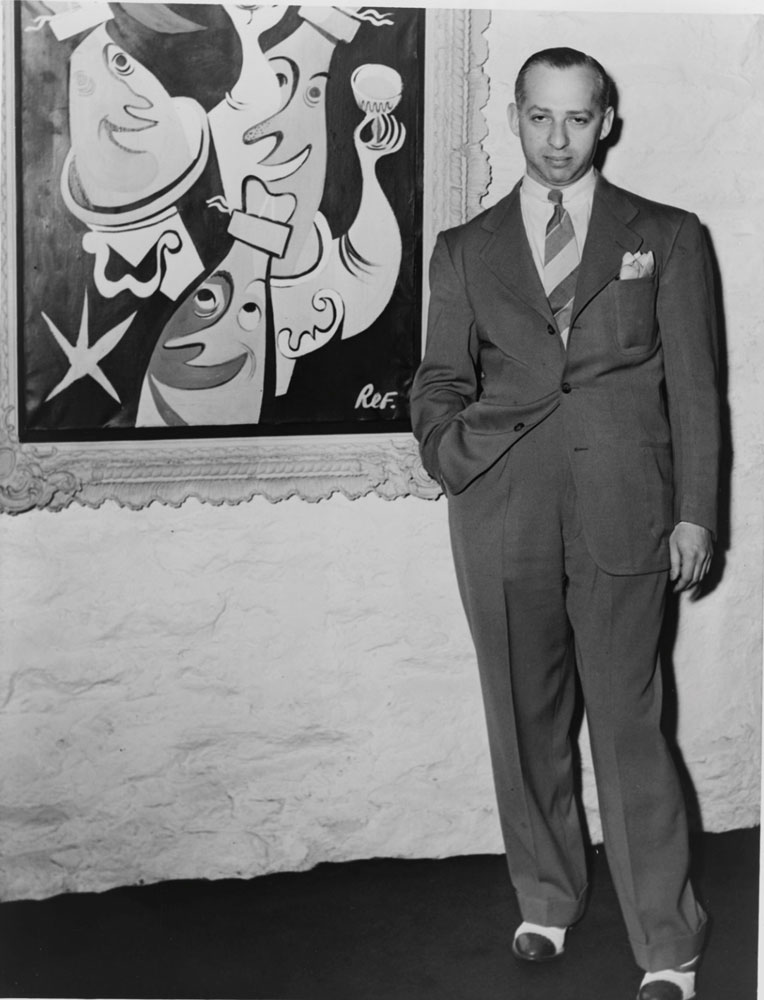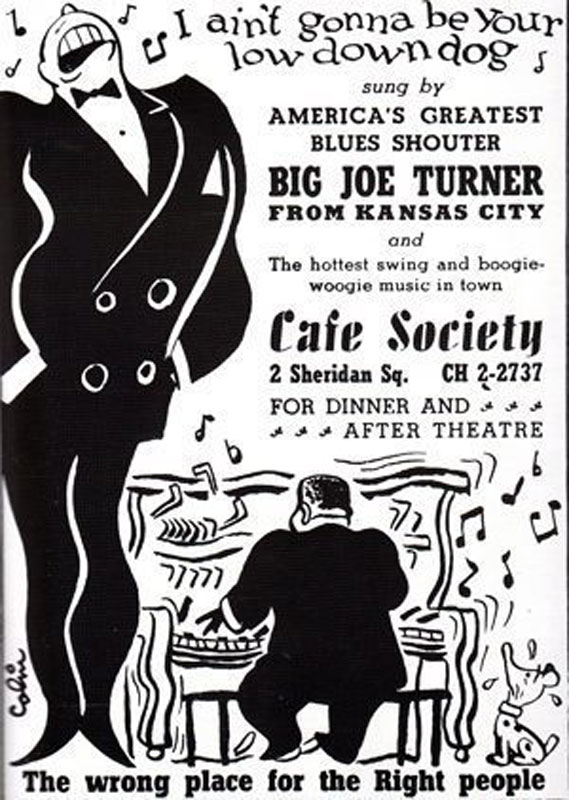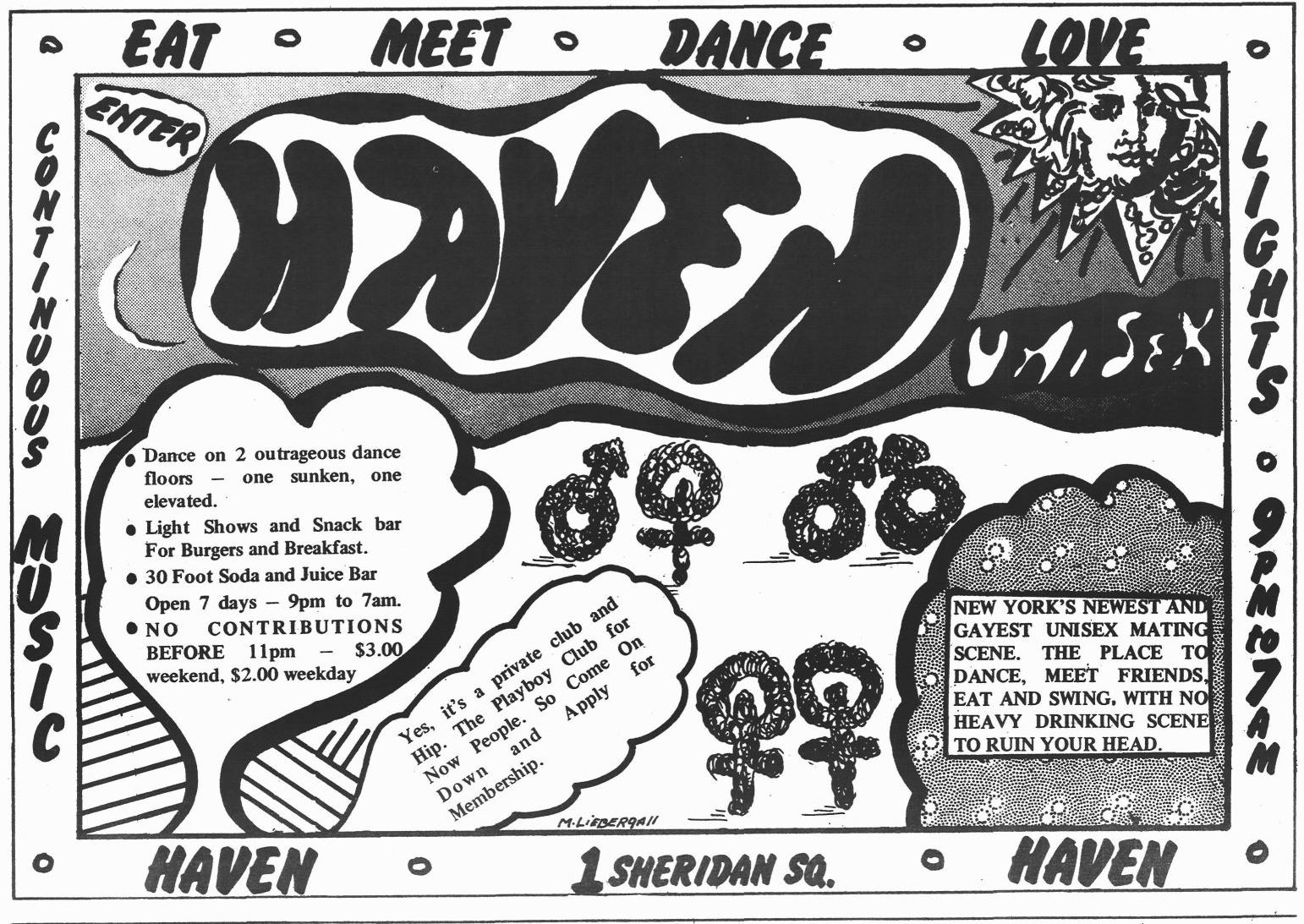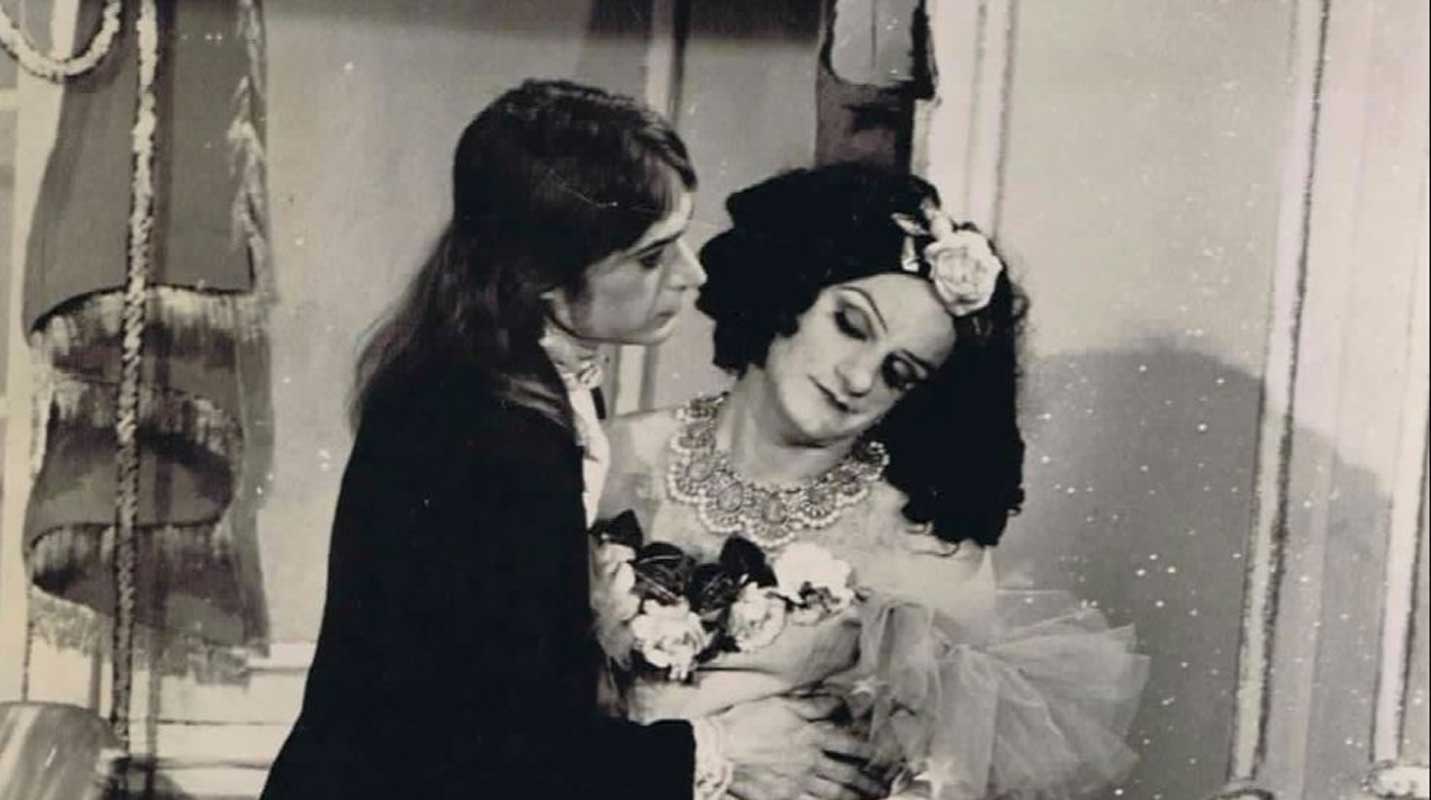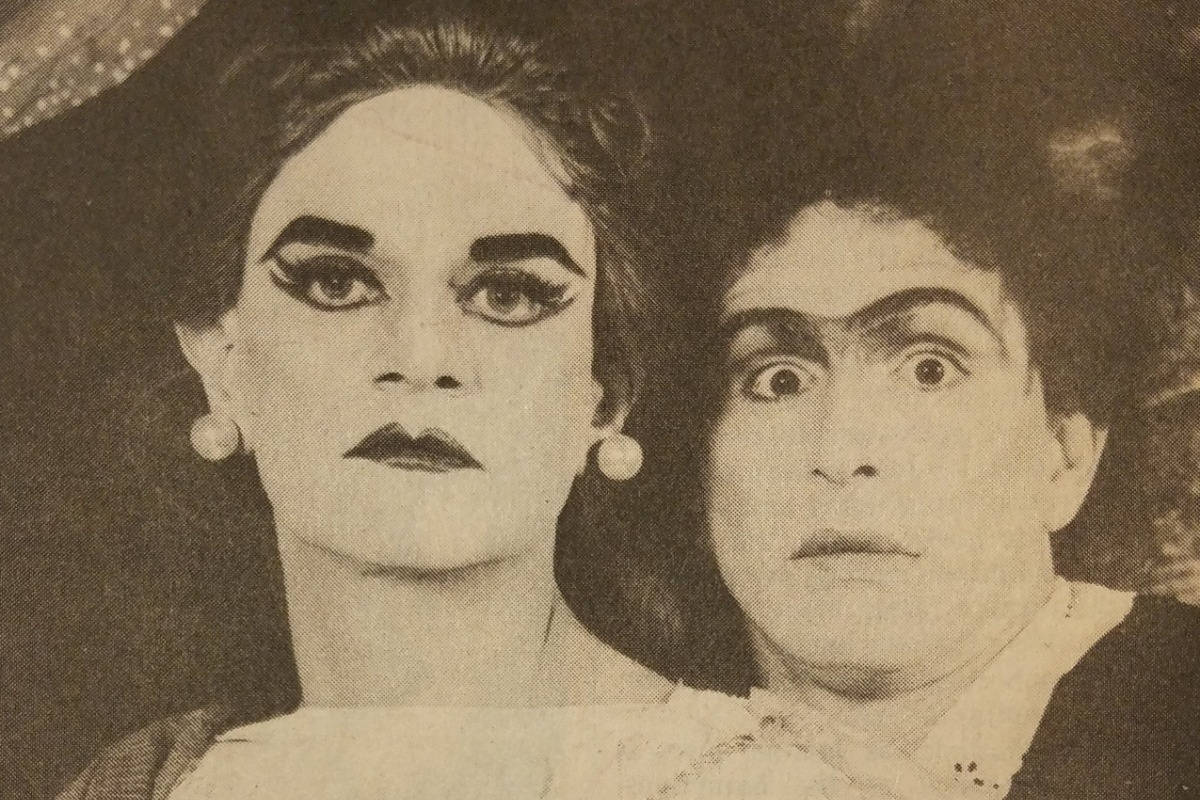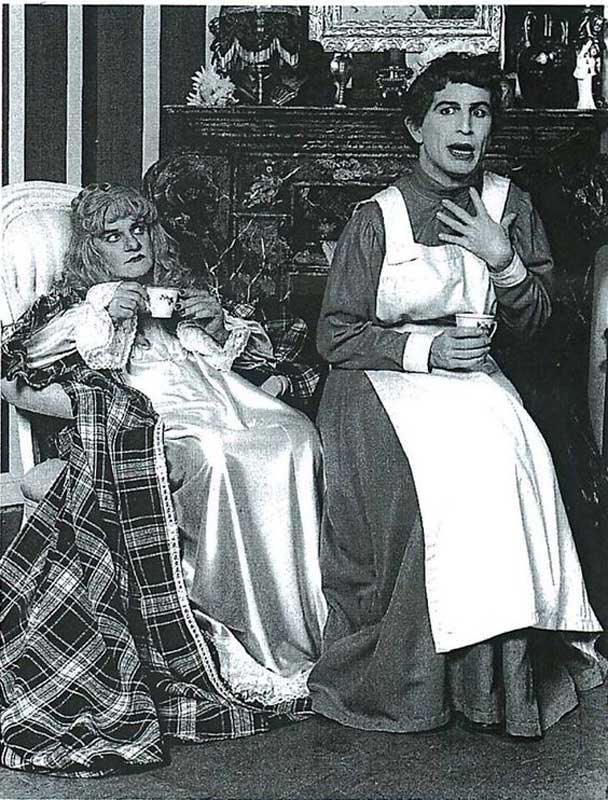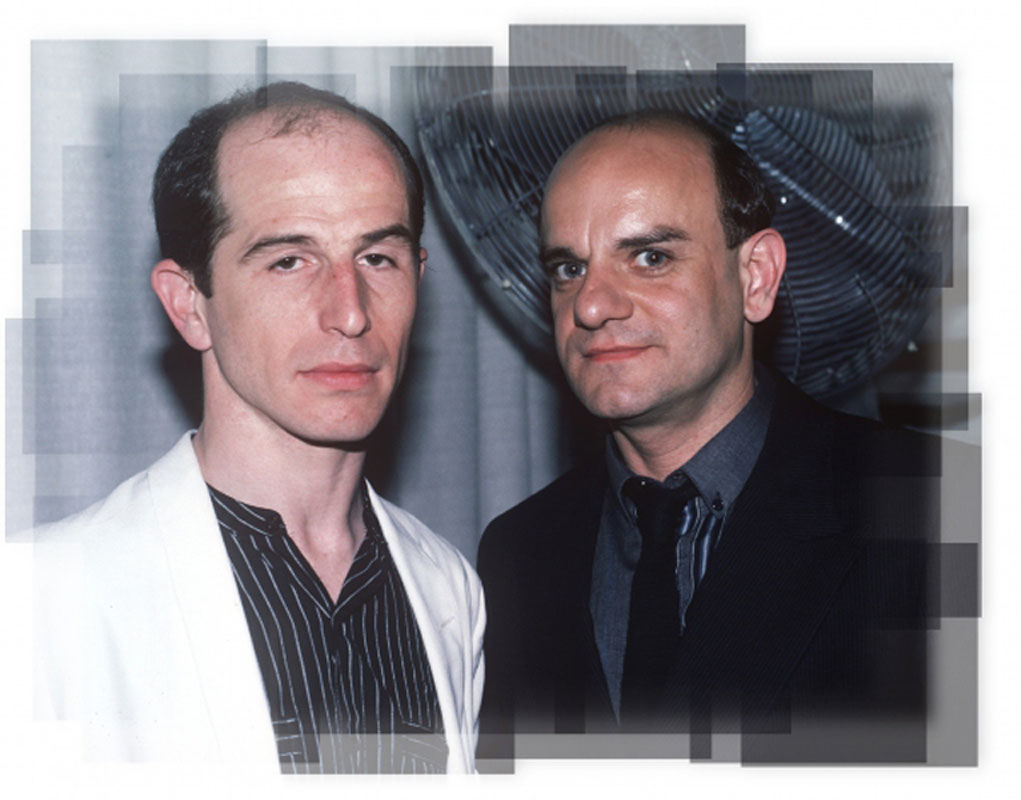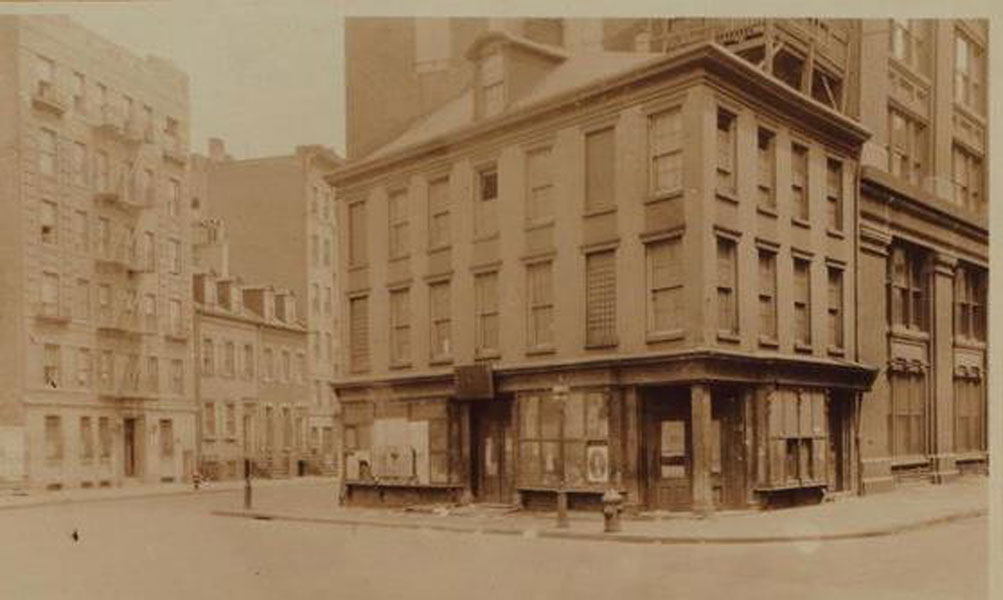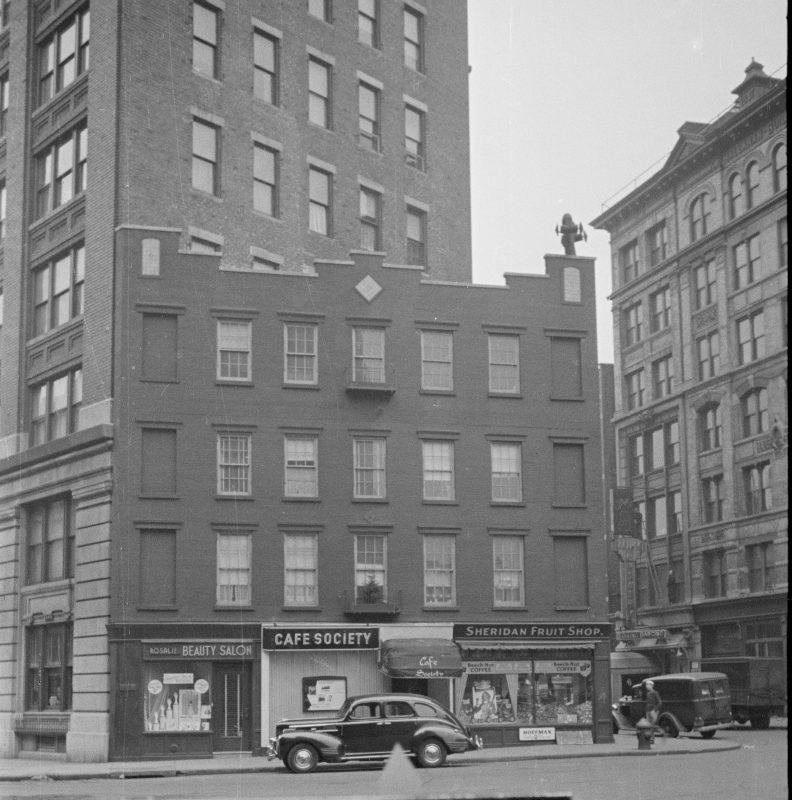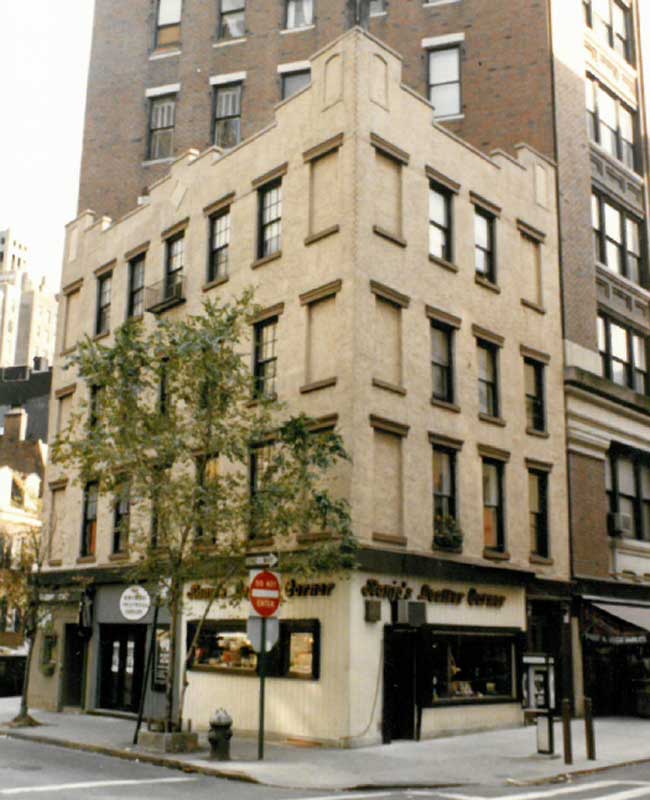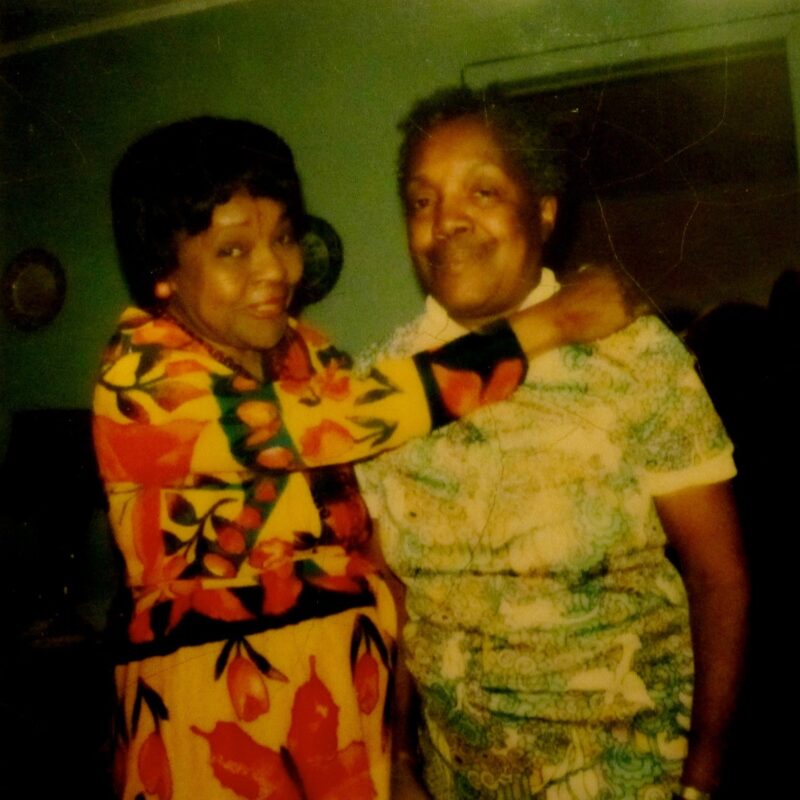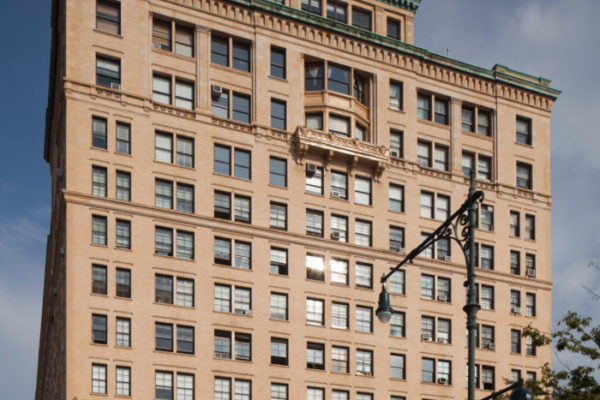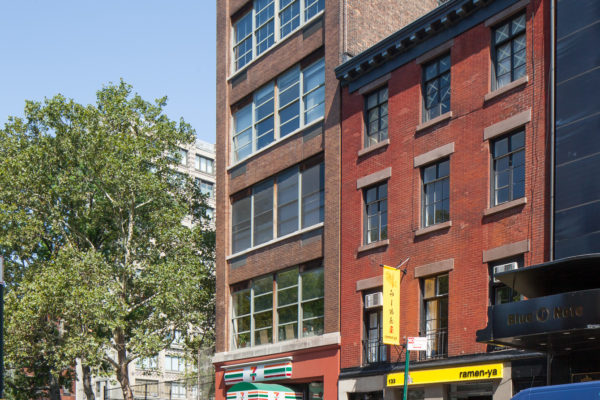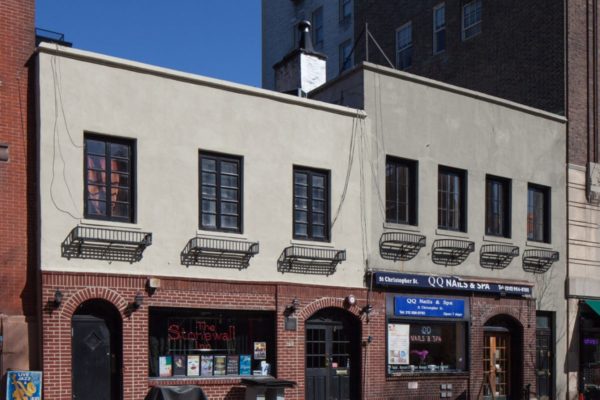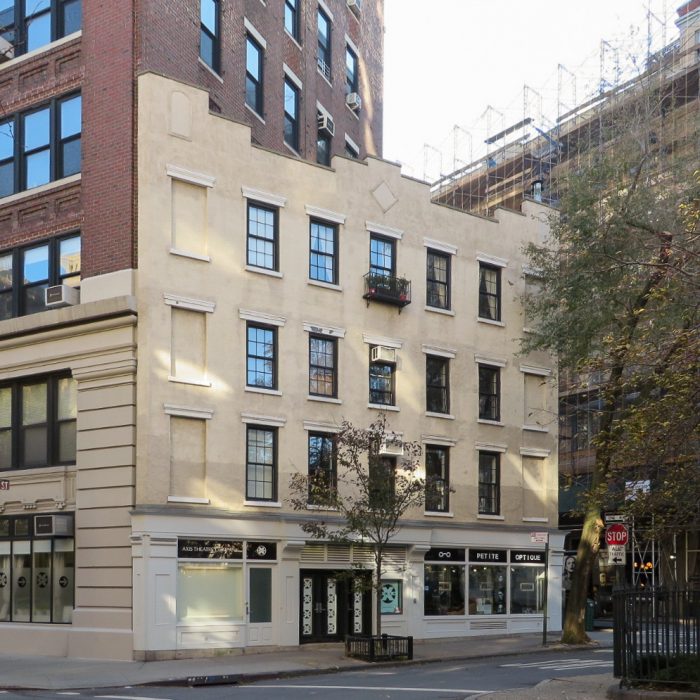
Café Society / Ridiculous Theatrical Company
other LGBT-associated businesses here were One Sheridan Square, Haven, and When We Win
overview
Café Society, what has been billed as New York’s first integrated club, featured many of the jazz giants and singers of the day, including Billie Holiday and Sister Rosetta Tharpe, from 1938 to 1950.
Charles Ludlam’s Ridiculous Theatrical Company, founded in 1967, was located here from 1978 to 1995 and was one of New York’s most innovative and influential Off-Off-Broadway theater troupes.
On the Map
VIEW The Full MapHistory
The small wedge-shaped building at 1 Sheridan Square was built in 1834 for Samuel Whittemore (first owner of the Julius’ building) and was originally three stories with a hipped roof. In 1927-28, it was raised one story, terminated with a stepped parapet, and stuccoed. During this remodeling the basement was joined with that of the adjoining 1902-03 factory building next door, which was converted into apartments. The basement was first the location of the Four Trees speakeasy/restaurant c. 1927-35.
Café Society
Trenton shoe salesman Barney Josephson opened Café Society in the basement space in 1938. Many people, including Josephson, have claimed that it was New York City’s first racially integrated club, but at least one venue, Small’s Paradise in Harlem (opened in 1925), appears to have preceded it. Bookings were made by now-legendary jazz producer John Hammond. It opened with a relatively unknown young singer named Billie Holiday, who played here for nine months and debuted the anti-lynching song Strange Fruit. Billed as “the wrong place for the Right people,” Café Society featured many of the jazz giants of the day, as well as such singers as gospel (and briefly jazz) star Sister Rosetta Tharpe. After his brother was subpoenaed by the House Committee on Un-American Activities in 1948 due to his leftist political connections, Josephson was attacked by newspaper columnists, and his business fell off greatly. He closed this club in 1950.
One Sheridan Square / Haven / When We Win
The space was converted into the Off-Broadway theater One Sheridan Square in 1960. In 1970, this was the “unisex” club Haven, which was continually harassed by the police and fire department. On the evening of August 29, 1970, the protestors with the Gay Activists Alliance, Gay Liberation Front, and Radicalesbians Demonstration Against Police Harassment at Times Square moved down to Sheridan Square, and found that police were right then raiding the Haven, and the police suddenly attacked the crowd. A police raid later on September 4, 1970, resulted in an estimated $20,000 of damage.
The 1 Sheridan Square space was briefly the nightclub When We Win, established by members of the Gay Activists Alliance in 1973. Headliners included Alaina Reed (with backup singer André De Shields), Rip Taylor, and Michael Greer.
Ridiculous Theatrical Company
Charles Ludlam’s Ridiculous Theatrical Company, founded in 1967, moved here in 1978. This was one of New York’s most innovative and influential Off-Off-Broadway theater troupes. In 2003, the New York Times noted that “Playwright, actor, and director, iconoclast among iconoclasts, Charles Ludlam was revolutionizing downtown New York culture in the 1970s with his gender-bending and outrageous theatrical sendups long before terms like ‘gender bending’ were common.” It continued,
Subversive, outrageous, politically incorrect, irreverent and hysterically funny, Charles Ludlam’s Ridiculous Theatrical Company parodied cultural as well as countercultural stereotypes.
Ludlam was in a unique theatrical position in New York, as the writer of 29 full-length plays that were produced by his own company. Among Ludlam’s new works or revivals shown in this theater space were Conquest of the Universe, or When Queens Collide (1967); Camille (1973); Der Ring gott Farblonjet (1977); GALAS (1983); and The Artificial Jungle (1986). The single most popular Ridiculous play was The Mystery of Irma Vep (1984-86), which won Obie and Drama Desk Awards.
Ludlam died of AIDS in 1987. The troupe continued under the leadership of Ludlam’s partner and fellow actor Everett Quinton. The street in front of the theater was renamed “Charles Ludlam Lane” in 1988. Quinton celebrated the 50th anniversary of the company, and 30th anniversary of Ludlam’s death, in 2017 with readings of several of Ludlam’s plays, as well as revivals of Conquest of the Universe, or When Queens Collide and The Artificial Jungle.
The Ridiculous Theatrical Company was located here until 1995. Since 1998, the basement theater has housed the Axis Theatre Company.
Entry by Jay Shockley, project director (November 2017; last revised May 2021).
NOTE: Names above in bold indicate LGBT people.
Building Information
- Architect or Builder: Unknown
- Year Built: 1834; altered 1927-28
Sources
Barney Josephson with Terry Trilling-Josephson, Café Society: The wrong place for the Right people (Chicago: University of Illinois Press, 2009).
Bevya Rosten, review of David Kaufman ‘s The Theatrical Life and Times of Charles Ludlam, The New York Times, February 16, 2003.
“Deep Vault Below Sheridan Square,” The New York Times, May 20, 1928.
Eric K. Washington, Instagram comment to @nyclgbtsites, May 5, 2021.
John S. Wilson, “The Café That Gave Us Chee-Chee and Boogie-Woogie,” The New York Times, June 23, 1974.
Lortel Archives, Internet Off-Broadway Database.
“One Sheridan Square,” The New York Times, August 12, 1960.
“Police Destroy $20,000 in Private Property,” GAY, September 28, 1970.
Rich Wandel, Oral History Project interview for Greenwich Village Society for Historic Preservation, June 8, 2016.
“Sheridan Square’s Old Landmarks Doomed for Tall Apartment House,” The New York Times, October 14, 1928.
Steven Samuels, ed., Ridiculous Theatre: Scourge of Human Folly (New York: Theatre Communications Group, Inc., 1992).
“We’re Fighting Back!,” Gay Flames, September 1, 1970.
[When We Win], GAY, January 15, 1973.
Do you have more information about this site?
This project is enriched by your participation! Do you have your own images of this site? Or a story to share? Would you like to suggest a different historic site?
